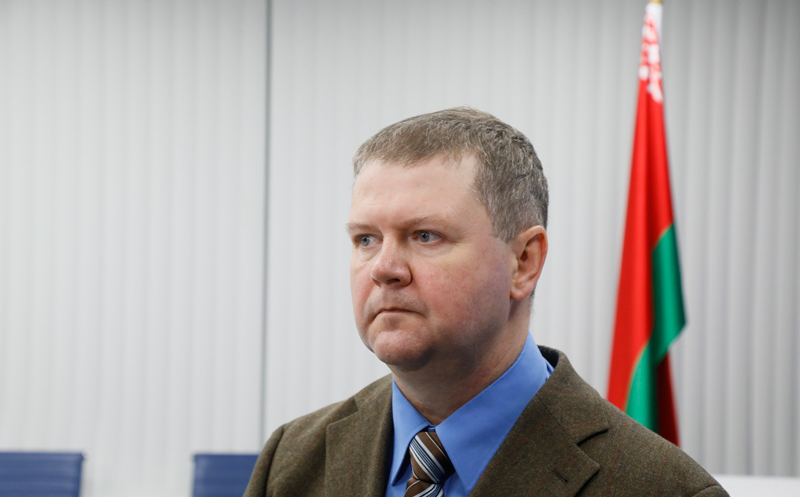The «turn to Asia» is a pragmatic consideration for the future. This was the statement made by Director of the Belarusian Institute of Strategic Research Oleg Makarov on the sidelines of an international expert seminar "Current issues in securing national "turn to Asia".
"We are definitely speaking about a "turn to Asia". And we believe this is not a risk, but a challenge of opportunities. I would not like to talk about geopolitical conditions that formed this challenge. But it is obvious that economic development of Asian countries is acquiring new qualities that allow us to treat this region both as a "workshop of the world" and a "consumer of the world". It is these conditions make us take a better look at this region. I believe it is absolutely justified and important not to be late with this move", Oleg Makarov said.
By his words, home development through the use of new opportunities in Asia is a national challenge. "The today's world is not limited just to the EU countries, it is much wider. And the issue of "turn to Asia" is not divorcing Europe, not a grudge against Europe, and not a matter related to sanctions or Belarusian emotions regarding political situation that has emerged in the European direction. This is a pragmatic consideration. And this is not so much a consideration for today, but for the future", the BISR Director noted.
Oleg Makarov stressed that success of the national "turn to Asia", initially associated with politics or economics, to a great extent depends on the humanitarian component, including mass awareness of the broad strata of society and professional communities about Asian prospects. The most important intellectual and informational challenge is the fundamental shift of this issue to the focus of mass consciousness. The world is becoming less universal and fragmented. This raises the importance of regions and regional studies. Therefore, each part of Asia should become an object of scientific research, Oriental studies should be a separate field of scientific knowledge and we should substantively study these issues.
A good help would be creation of a national business school, including in association with the leading research and educational centers of certain Asian countries, including the development of specialized educational programs on "business in Asian" with a targeted country specialization. There is a demand for specialists in Oriental studies who don't just deeply understand events and processes being the case in Asian countries, but can offer concrete solutions to challenges facing the state and business. An extra support and resource base can be, for example, the Belarusian diasporas, already developed sufficiently and relatively successfully integrated into business environment of the Asian region countries.
The BISR added that a critical prerequisite for successful "turn to Asia" should be elaboration of an accompanying international brand of Belarus synchronized with the long-term Asian strategy.
In the current international situation, the government-guided national "turn to Asia" is both the matter of ensuring national security, and a measure of anti-crisis response.
The Belarusian Institute of Strategic Research is hosting an international expert seminar on "turn to Asia". The event, held in a hybrid format, is attended by leading experts of the Ministry of Foreign Affairs, Ministry of Economy, National Center for Marketing, the Belarusian Chamber of Commerce and Industry, Development Bank, Foreign Economic Agency, the Republican Business Confederation, Belarusian State University, Belarus State Economic University, Academy of Public Administration under the President of the Republic of Belarus. Foreign experts will also make their presentations. The Ministry of Industry is widely represented by subordinate enterprises.
The event addressed the search for common vision and critical inventory at the level of those engaged in the current state of affairs in the Asian vector, identification of problems, ways and tools to solve them in the short and medium term. The long-term objective is to create a permanent intellectual club (platform) in the BISR for expert support of promoting national interests in the target countries, including at the level of business interests bearers. The strategic plan aims to synchronize the experience and efforts of state managers, business (entrepreneurs), the educational sector and the expert community.


